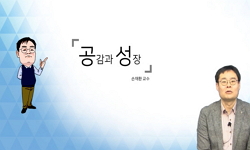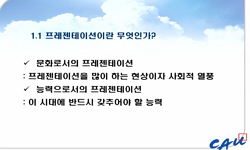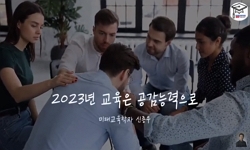This paper is an account of myself. As a researcher dealing with North Koreans/North Korean defectors, I am losing my objective stance towards research subjects and becoming an ordinary person facing various difficulties in my interactions with North ...
http://chineseinput.net/에서 pinyin(병음)방식으로 중국어를 변환할 수 있습니다.
변환된 중국어를 복사하여 사용하시면 됩니다.
- 中文 을 입력하시려면 zhongwen을 입력하시고 space를누르시면됩니다.
- 北京 을 입력하시려면 beijing을 입력하시고 space를 누르시면 됩니다.

공감의 윤리, 그 (불)가능성 -필드에서의 연구자의 마음 = Ethics of Sympathy and its (Im)possibility -The Researcher`s Mind in the Field
한글로보기https://www.riss.kr/link?id=A101968415
- 저자
- 발행기관
- 학술지명
- 권호사항
-
발행연도
2016
-
작성언어
-
-
주제어
공감 ; 자기민속지학 ; 과학적 연구 ; 북한이탈주민 ; 연구자의 마음 ; Sympathy ; Autoethnography ; Scientific Research ; North Korean Defector ; Researcher`s Mind
-
KDC
300
-
등재정보
KCI등재
-
자료형태
학술저널
-
수록면
107-146(40쪽)
-
KCI 피인용횟수
5
- 제공처
- 소장기관
-
0
상세조회 -
0
다운로드
부가정보
다국어 초록 (Multilingual Abstract)
This paper is an account of myself. As a researcher dealing with North Koreans/North Korean defectors, I am losing my objective stance towards research subjects and becoming an ordinary person facing various difficulties in my interactions with North Koreans. In addition, I am increasingly obsessed with the need to sympathize with North Koreans. Yet at the same time I feel that such sympathy may never be possible. I strongly believe that I should unconditionally welcome North Koreans to South Korea, and this attitude should form an important basis to my ethical life as a sociologist. As I have come to realize the complexities of sympathy towards North Koreans, I experience the immense fear whether I will become an unethical person. Because of this, I have made significant efforts to conscientiously understand North Koreans in order to ensure I am an ethical human being. Adopting an autoethnographical research method, this paper reflexively explores my mind as a researcher who has found the roles of researcher and ordinary person increasingly blurred. Developing a guilty conscience towards my approach to minorities could invite other possibilities for social solidarity and the moral life, yet might produce ostracism, self-defense mechanisms and even self-hypnosis for not being unconditionally hospitable to others. Finding a way to reconstruct moral responsibilities is a key to overcoming a sense of shame and to create social solidary based on stronger moral and ethical rules.
참고문헌 (Reference)
1 테브나즈, 피에르, "현상학이란 무엇인가: 후설에서 메를로 퐁티까지" 그린비 2011
2 이남인, "현상학과 해석학" 서울대학교출판문화원 2013
3 세넷, 리처드, "투게더" 현암사 2013
4 최종렬, "탈영토화된 공공장소에서 '에스니시티 전시하기': 안산에 대한 관광객의 문화기술지적 단상들" 한국사회학회 46 (46): 1-44, 2012
5 주형일, "직관의 사회학, 나의 사회학 그리고 현상학적 방법" 한국언론학회 4 (4): 77-113, 2008
6 주형일, "지방대에 대한 타자화 담론의 주관적 수용의 문제 : 자기민속지학 방법의 적용" 한국여성커뮤니케이션학회 (13) : 75-114, 2010
7 한우리, "정체성의 구성과 균열- 20대 여성주의자와 아이돌 사이에서" 한국문화사회학회 12 (12): 105-145, 2012
8 기어츠, 클리퍼드, "저자로서의 인류학자: 레비스트로스, 에번스 프리처드, 말리노프스키, 베니딕트" 문학동네 2014
9 최종렬, "이야기가 있는 사회학: 베버와 바나나" 마음의 거울 2015
10 주형일, "왜 나는 스파이더맨을 좋아하는가 : 자기민속지학 방법의 모색" 사단법인 언론과 사회 15 (15): 2-36, 2007
1 테브나즈, 피에르, "현상학이란 무엇인가: 후설에서 메를로 퐁티까지" 그린비 2011
2 이남인, "현상학과 해석학" 서울대학교출판문화원 2013
3 세넷, 리처드, "투게더" 현암사 2013
4 최종렬, "탈영토화된 공공장소에서 '에스니시티 전시하기': 안산에 대한 관광객의 문화기술지적 단상들" 한국사회학회 46 (46): 1-44, 2012
5 주형일, "직관의 사회학, 나의 사회학 그리고 현상학적 방법" 한국언론학회 4 (4): 77-113, 2008
6 주형일, "지방대에 대한 타자화 담론의 주관적 수용의 문제 : 자기민속지학 방법의 적용" 한국여성커뮤니케이션학회 (13) : 75-114, 2010
7 한우리, "정체성의 구성과 균열- 20대 여성주의자와 아이돌 사이에서" 한국문화사회학회 12 (12): 105-145, 2012
8 기어츠, 클리퍼드, "저자로서의 인류학자: 레비스트로스, 에번스 프리처드, 말리노프스키, 베니딕트" 문학동네 2014
9 최종렬, "이야기가 있는 사회학: 베버와 바나나" 마음의 거울 2015
10 주형일, "왜 나는 스파이더맨을 좋아하는가 : 자기민속지학 방법의 모색" 사단법인 언론과 사회 15 (15): 2-36, 2007
11 한병철, "에로스의 종말" 문학과 지성 2013
12 레비나스, 엠마누엘, "시간과 타자" 문예출판사 2009
13 김경호, "슬픔은 어디에서 오는가? -신체화된 마음을 중심으로-" 중앙철학연구소 31 : 125-152, 2012
14 후설, 에드문트, "순수현상학과 현상학적 철학의 이념들 1" 한길사 2009
15 이기형, "소통과 감응을 지향하는 학문적인 글쓰기를 위한 문제의식과 대안의 추구: ‘자기민속지학’과 대안적인 학술 글쓰기의 사례들을 중심으로" 한국언론학회 9 (9): 250-302, 2013
16 노명우, "사회학의 쓸모" 서해문집 2015
17 바우만, 지그문트, "사회학의 쓸모" 서해문집 2015
18 일루즈, 에바, "사랑은 왜 아픈가 : 사랑의 사회학" 돌베개 2013
19 김현경, "사람, 장소, 환대" 문학과 지성사 2015
20 김홍중, "마음의 사회학을 이론화하기: 기초개념들과 설명논리를 중심으로" 한국사회학회 48 (48): 179-213, 2014
21 바우만, 지그문트, "도덕적 불감증: 유동적 세계에서 우리가 잃어버린 너무 나도 소중한 감수성에 관하여" 책읽는 수요일 2015
22 김왕배, "도덕감정: 부채의식과 감사, 죄책감의 연대" 한국이론사회학회 (23) : 135-172, 2013
23 신중섭, "도덕 감정과 이기심— 아담 스미스를 중심으로 —" 새한철학회 73 (73): 109-133, 2013
24 안진, "나는 왜 백인 출연자를 선택하는가?: 어느 TV 제작자의 자기민속지학적 연구" 한국여성커뮤니케이션학회 30 (30): 83-121, 2015
25 정향진, "감정의 인류학" 한국문화인류학회 46 (46): 165-209, 2013
26 누스바움, 마샤, "감정의 격동 2 : 연민" 새물결 2015
27 혹실드, 엘리 러셀, "감정노동: 노동은 우리의 감정을 어떻게 상품으로 만드는가" 이매진 2009
28 황태연, "감정과 공감의 해석학" 청계 2014
29 일루즈, 에바, "감정 자본주의" 돌베개 2010
30 Holt, N.L., "Representation, Legitimation, and autoethnography: An autoethnographic writing story" 2 (2): 2003
31 Khosravi, Khosravi, "Illegal’ Traveller: An Auto-Ethnography of Border" Palgrave 2010
32 Ellis, C, "Handbook of Qualitative Research" Sage 2000
33 Chang, "Collaborative Autoethnography" Left Coast Press 2013
34 Reed-Danahay, Deborah, "Auto/ethnography: Rewriting the Self and the Social" Berg 1997
35 Malinowski, Bronislaw, "A Diary in the Strict Sense of the Term" Duckworkth 1967
동일학술지(권/호) 다른 논문
-
냉전시기의 북미협상 -1968년 푸에블로호 사건을 중심으로
- 동국대학교 북한학연구소
- 김연철 ( Yeon Chul Kim )
- 2016
- KCI등재
-
일본 아베정권의 대북한 정책 -대화, 압력 그리고 제재
- 동국대학교 북한학연구소
- 이종국 ( Jong Guk Lee )
- 2016
- KCI등재
-
북한이탈주민의 다문화수용성에 영향을 미치는 요인 -남한주민과의 비교를 중심으로
- 동국대학교 북한학연구소
- 양계민 ( Kye Min Yang )
- 2016
- KCI등재
-
- 동국대학교 북한학연구소
- 김상범 ( Sang Bum Kim )
- 2016
- KCI등재
분석정보
인용정보 인용지수 설명보기
학술지 이력
| 연월일 | 이력구분 | 이력상세 | 등재구분 |
|---|---|---|---|
| 2027 | 평가예정 | 재인증평가 신청대상 (재인증) | |
| 2021-01-01 | 평가 | 등재학술지 유지 (재인증) |  |
| 2018-01-01 | 평가 | 등재학술지 유지 (등재유지) |  |
| 2017-10-12 | 학회명변경 | 영문명 : The Institute of North Korea Studies Dongguk University -> The Institute for North Korean Studies, Dongguk University |  |
| 2015-01-01 | 평가 | 등재학술지 선정 (계속평가) |  |
| 2013-01-01 | 평가 | 등재후보학술지 유지 (등재후보1차) |  |
| 2012-01-01 | 평가 | 등재후보 1차 FAIL (등재후보1차) |  |
| 2010-01-01 | 평가 | 등재후보학술지 선정 (신규평가) |  |
학술지 인용정보
| 기준연도 | WOS-KCI 통합IF(2년) | KCIF(2년) | KCIF(3년) |
|---|---|---|---|
| 2016 | 1.09 | 1.09 | 0.81 |
| KCIF(4년) | KCIF(5년) | 중심성지수(3년) | 즉시성지수 |
| 0.69 | 0.61 | 1.202 | 0.08 |




 KCI
KCI KISS
KISS







